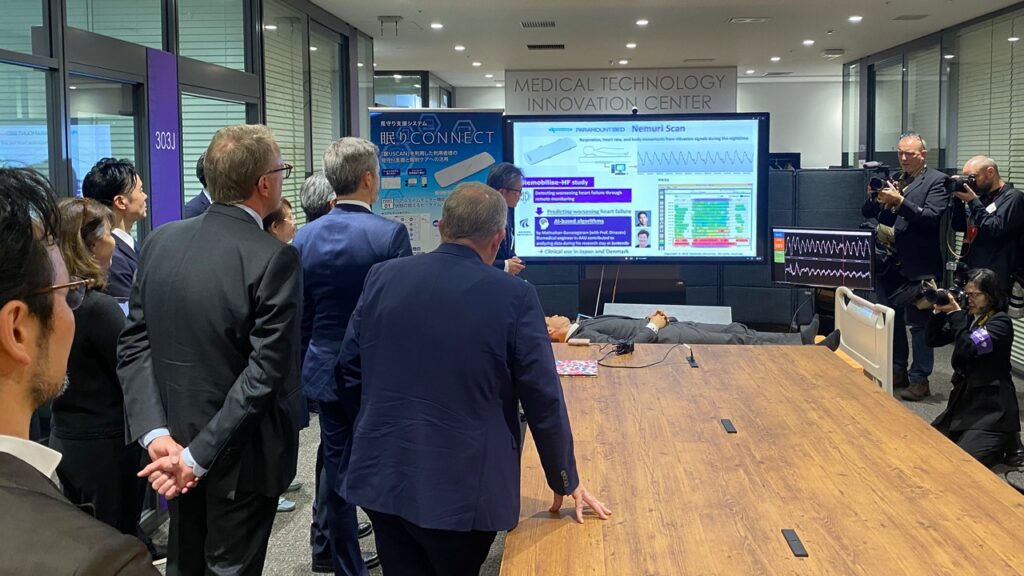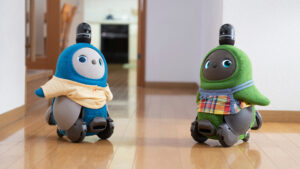His Majesty King Frederik of Denmark is today visiting Juntendo University Hospital in Tokyo, Japan, together with Minister for Foreign Affairs Lars Løkke Rasmussen, Minister for Industry Morten Bødskov, and Minister for Food, Agriculture and Fisheries Jacob Jensen.
Aalborg University (AAU) has been collorating with Juntendo University Hospital for years and the King and the Danish delegation has been presented for some of our joint research: Artificial intelligence & sleep sensor for heart patients.

Dr Kasei (cardiologist) and Dr Daida (cardiologist) have worked to develop a sleep sensor (Nemuri) for a bed (together with the company Paramount Bed in Japan) that can detect sleep apnea in patients with severe heart failure. Mathushan Gunasegaram, who is a civil engineer in health technology and working at AAU has helped analyze data during a study stay at Juntendo University, which showed via machine learning (artificial intelligence) and analysis of data such as respiration, pulse and movement (from the sleep sensor), that there were signs of heart failure 4 days before hospitalization.
In this way, the sleep sensor can help prevent hospitalizations in this patient group, which typically has a high readmission rate and can be expensive for the healthcare system. AAU also work with sleep sensors and heart failure patients in their Future Patient study in Viborg, and have a close research collaboration.

The King and the Danish delegation was also presented for the social robot LOVOT developed by Groove X. LOVOT is a social robot with artificial intelligence . LOVOT is designed to bring happiness, which it does with its evolving personality and person recognition. With its eyes and body language, LOVOT can show emotions. In addition, it can become warm like a living being – and an internal warmth of 37° celsius – and make noises. It features over 50 sensors that mimic the behaviour of pets like dogs or cats, a 360° camera with a microphone, the ability to distinguish humans from objects.
We have previously tested LOVOT with residents with dementia, living in care centers in Aalborg, Viborg or Skive municipality, who are lonely, have high arousal or have introverted behaviour. The conclusion was that LOVOT has a positive impact on the mood of the tested individuals and that the staff felt that the artificial behavior came across as natural and that LOVOT was user-friendly.
In May AAU will start a new trial with 10 LOVOT robots at 4 nursing homes in Aarhus Municipality. We are looking forward to this collaboration.
Photos: Thomas Højlund Christensen, Royal Danish Embassy in Tokyo & Groove X